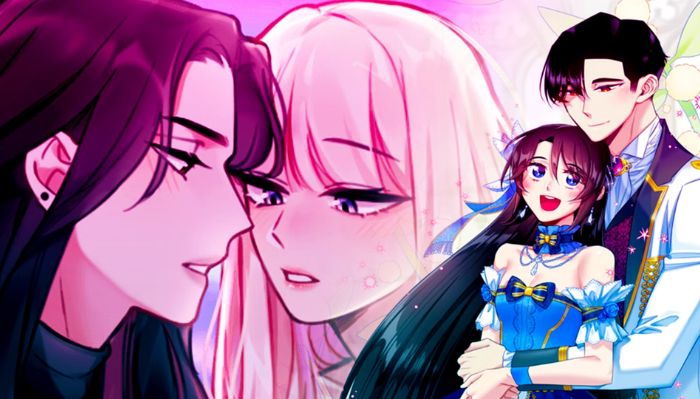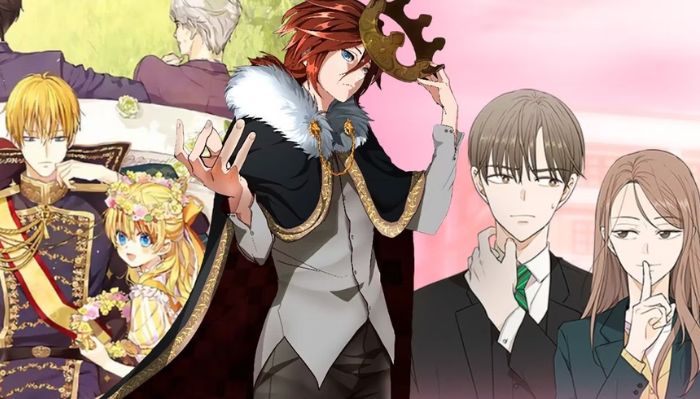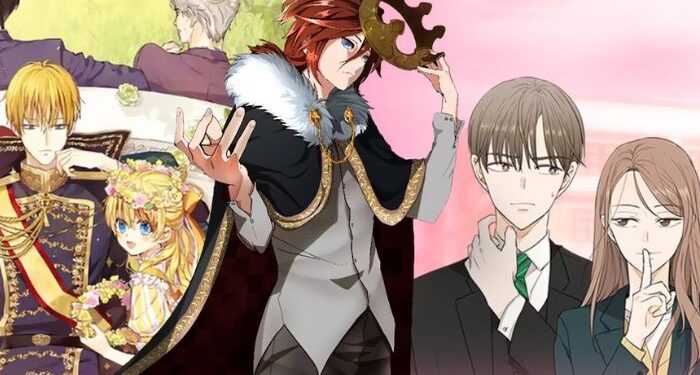Manga and manhwa have captivated millions of readers worldwide, not just with their intricate plots and stunning art but also with their compelling characters. These characters are often more than just fictional beings; they are crafted with psychological depth, mirroring real human emotions, desires, and struggles. Understanding the psychology behind popular manga and manhwa characters can provide readers with a richer experience, revealing the complexities of human nature. This article explores the psychological traits of some well-known manga and manhwa characters, diving into what makes them so relatable and unforgettable.

The Allure of Complex Characters
Before delving into specific characters, it is essential to understand why complex characters appeal to readers. Characters in manga and manhwa are often designed to evoke empathy, fascination, or even repulsion. Their psychological depth allows readers to see parts of themselves reflected in these characters, fostering a deeper connection to the story.
- Relatability: Characters who display emotions and face struggles that readers can relate to tend to be more popular. This relatability comes from their internal conflicts, desires, fears, and personal growth throughout the narrative.
- Psychological Realism: The best manga and manhwa characters often exhibit psychological realism—they think, feel, and behave in ways that are consistent with real human psychology. This realism makes their actions and decisions believable and compelling.
- Emotional Complexity: Characters with a wide range of emotions, such as joy, anger, sadness, and fear, tend to be more memorable. Their emotional journeys often mirror those of real people, making them resonate more deeply with readers.
Analyzing Popular Manga Characters
1. Light Yagami from “Death Note”
Light Yagami, the protagonist of the manga “Death Note,” is a prime example of a psychologically complex character. A highly intelligent high school student who stumbles upon a notebook that allows him to kill anyone by writing their name in it, Light initially uses the notebook to rid the world of criminals. However, his sense of justice quickly spirals into a god complex.
- Psychological Traits: Light exhibits traits of narcissism and megalomania. He begins to see himself as a god-like figure, justified in his actions to cleanse the world of evil. His intelligence, combined with his growing arrogance and lack of empathy, makes him a compelling yet terrifying character.
- Real-World Relevance: Light’s psychological profile reflects a classic anti-hero archetype. His descent into madness is a study of how power can corrupt, illustrating the dangers of absolute power and the thin line between good and evil.
2. Shinji Ikari from “Neon Genesis Evangelion”
Shinji Ikari, the protagonist of “Neon Genesis Evangelion,” is often regarded as one of the most psychologically complex characters in manga and anime. As a teenage pilot of a giant bio-machine, Shinji struggles with depression, anxiety, and a deep sense of worthlessness.
- Psychological Traits: Shinji suffers from severe social anxiety and depression, constantly seeking validation from those around him. His inability to assert himself and his constant fear of rejection reflect a deep-seated insecurity and a lack of self-esteem.
- Real-World Relevance: Shinji’s character is a poignant exploration of adolescent angst and the search for identity. His psychological struggles resonate with readers who have experienced similar feelings of isolation, making him a relatable character for many.
3. Thorfinn from “Vinland Saga”
Thorfinn, the protagonist of “Vinland Saga,” is a character whose psychological evolution is central to the story. Beginning as a young, revenge-driven warrior, Thorfinn’s character undergoes significant development as he grapples with themes of revenge, forgiveness, and finding a purpose beyond violence.
- Psychological Traits: Thorfinn starts with a single-minded focus on avenging his father’s death, displaying traits of trauma-induced aggression and obsession. However, as he matures, he experiences deep psychological growth, transitioning from a vengeful fighter to someone seeking redemption and peace.
- Real-World Relevance: Thorfinn’s journey reflects a psychological battle many face: the struggle between vengeance and forgiveness. His evolution shows the potential for personal growth even after experiencing profound loss and trauma.
Exploring Popular Manhwa Characters
1. Sung Jin-Woo from “Solo Leveling”
Sung Jin-Woo, the protagonist of the popular manhwa “Solo Leveling,” starts as one of the weakest hunters in a world filled with deadly dungeons and monsters. However, after a mysterious event grants him unique powers, he embarks on a journey to become the strongest.
- Psychological Traits: Sung Jin-Woo’s transformation from weak to strong is fueled by a deep-rooted fear of being powerless. His relentless pursuit of strength and survival is a psychological response to the trauma of facing death repeatedly.
- Real-World Relevance: Sung Jin-Woo’s character resonates with readers who have experienced feelings of inadequacy and powerlessness. His journey is one of self-improvement and perseverance, themes that many find inspirational.
2. Yeon-woo Cha from “Second Life Ranker”
In “Second Life Ranker,” Yeon-woo Cha is a character-driven by vengeance after the mysterious death of his twin brother. The manhwa explores his psychological journey as he navigates a perilous tower filled with challenges and powerful enemies.
- Psychological Traits: Yeon-woo displays traits of deep determination and a cold, calculated approach to his objectives. His grief manifests as a fierce drive for revenge, but as the story progresses, he begins to question the true cost of his vengeance.
- Real-World Relevance: Yeon-woo’s character reflects the psychological impact of loss and the lengths one might go to for closure or justice. His journey explores the themes of revenge versus redemption, offering readers a character study in dealing with grief and anger.

The Role of Trauma in Character Development
Trauma is a recurring theme in both manga and manhwa, shaping many characters’ psychological profiles. Characters often face significant trauma—be it the loss of a loved one, societal rejection, or a near-death experience—that profoundly influences their actions and worldview.
- Character Motivation: Trauma often serves as a critical motivator for character development. It can push characters towards heroism or villainy, depending on how they process their experiences.
- Reader Connection: Readers often connect with characters who have experienced trauma because it reflects real-life struggles. The way characters handle their trauma can inspire readers to confront their challenges, making these stories both entertaining and therapeutic.
Understanding the Villain Archetype
In both manga and manhwa, villains are often more than just antagonists; they are psychologically complex characters with motivations that go beyond mere evilness.
- Sympathetic Villains: Characters like Shigaraki Tomura from “My Hero Academia” or Muzan Kibutsuji from “Demon Slayer” are written with backstories that explain their turn towards villainy. These characters often suffer from trauma or societal rejection, which shapes their destructive paths.
- Real-World Application: By understanding the psychological underpinnings of villainous characters, readers gain insight into the nature of good and evil. These characters challenge readers to consider the circumstances that lead someone down a darker path.
The psychology behind popular manga and manhwa characters is a significant factor in what makes them so engaging and memorable. By crafting characters with deep psychological profiles, creators provide readers with more than just entertainment—they offer insights into human nature and the complexities of the human psyche. Whether you’re a fan of manga or manhwa, understanding these psychological elements can deepen your appreciation for the stories and characters that have captivated readers worldwide. For those looking to explore more about these fascinating characters, zinmanga.net is an excellent resource to find both popular and lesser-known titles that offer rich psychological exploration.








